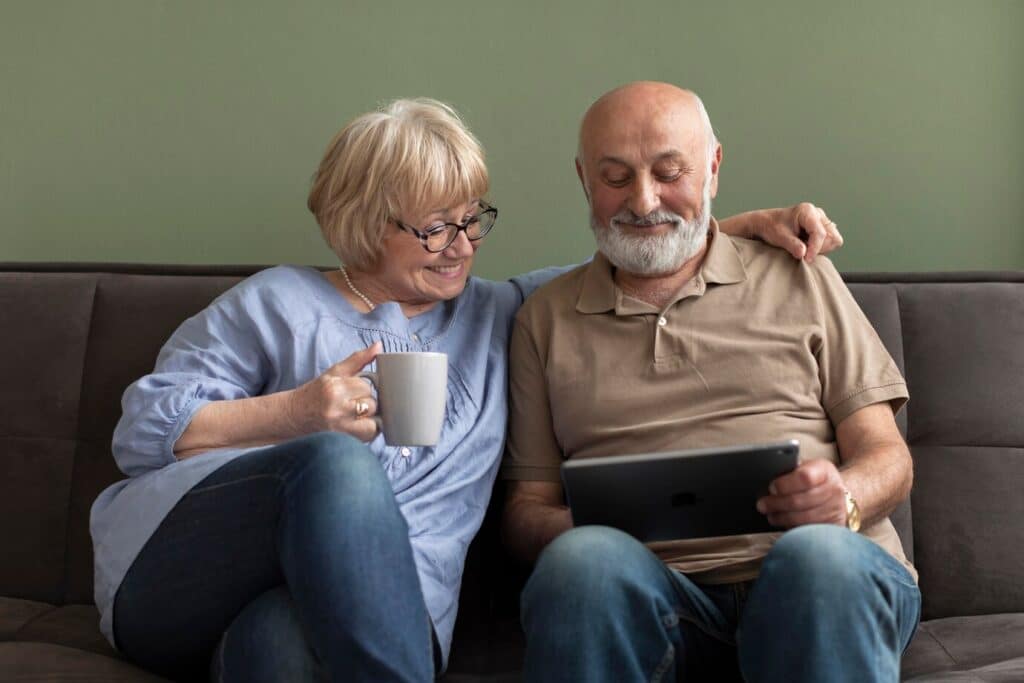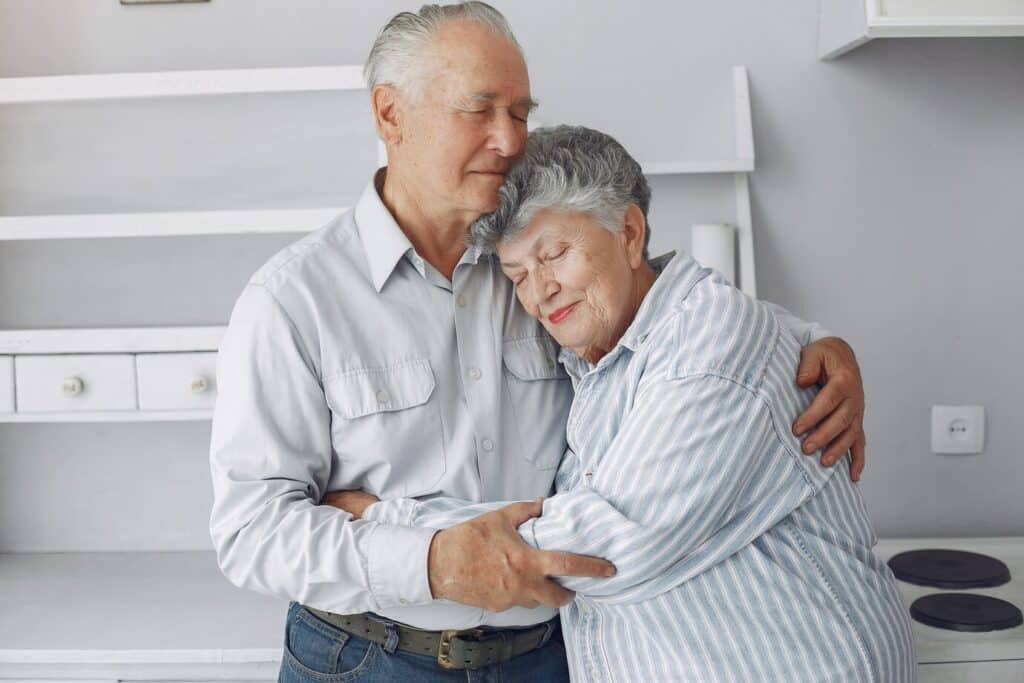Best Ways to Care for Older Adults at Home
Caring for older adults goes far beyond essential support—it’s about fostering dignity, independence, and emotional connection. Whether you’re a family or a professional caregiver, understanding how to care for older adults means meeting their needs with both compassion and respect. From creating safe living spaces to promoting wellness and offering emotional support, the goal is always the same: helping them thrive. Home-based elder care is becoming more accessible, with more free services for senior citizens and government assistance than ever before. Families are now learning how to take care of the elderly at home in ways that align with their loved ones’ unique preferences and values. With a blend of personal involvement and helpful resources, you can give your loved one the care they deserve without compromising their independence. Supporting their journey takes more than tasks; it takes heart. And with a thoughtful approach, you can make a world of difference.
Understanding Individual Needs in Elder Care
When you explore how to care for older adults, it starts with recognizing their individuality. Everyone ages differently. One senior may need help with mobility, while another struggles with memory or loneliness. Tailoring care to these diverse needs ensures seniors feel understood and respected. Embrace their stories, routines, and the emotional nuances of aging. Simple gestures like remembering their favorite morning drink or listening to stories from their past go a long way. The more connected you are to their world, the better care you provide. Respecting preferences while assisting with hygiene or meals allows them to feel in control. This understanding leads to better outcomes and stronger bonds.
How to Take Care of the Elderly at Home with Confidence
Learning how to take care of the elderly at home involves preparation, patience, and flexibility. You might begin with small changes—clearing cluttered pathways or organizing medication. But caring at home also means adapting your routine, staying alert to changing health signs, and encouraging engagement. Emotional support is as vital as physical assistance. Spend time with your loved one, play their favorite music, or go on short walks together. You’ll likely find that the most meaningful care moments aren’t scheduled—they’re the spontaneous ones that bring joy or comfort. For deeper insight, this guide on family involvement shares how your role matters more than you might think.
Free In-Home Help for Seniors Can Make All the Difference
Providing quality care for older adults doesn’t have to be overwhelming or expensive. Today, some programs offer free in-home help for seniors, including home health aides, transportation to medical appointments, and respite care for family caregivers. These services, often funded by nonprofit groups or state agencies, give families a break and ensure older adults continue receiving care in familiar surroundings. Having trained professionals available, even part-time, eases the caregiving load while promoting safety and structure. For those who qualify, elderly care assistance from the government can be a life-changing support system that keeps seniors at home longer and healthier.
Creating a Safe and Comfortable Home Environment
Safety is a key factor in senior care. Slip hazards, poor lighting, and narrow hallways are common obstacles. Minor modifications—like adding grab bars or rearranging furniture for clearer walkways—make a huge impact. Make sure everything they need is within reach to avoid unnecessary strain. Your loved one will feel more confident moving about, knowing their home supports rather than hinders them. Equally important is emotional safety. Keep a predictable routine, offer reassurance during uncertain moments, and always involve them in decisions. This kind of secure environment nurtures both trust and independence. Explore fall prevention tips here for more ideas.

The Role of Technology in Senior Care
Encouraging Mental and Social Engagement
Mental stimulation is as essential as physical health. Seniors benefit from regular cognitive activities—doing puzzles, reading, or having thoughtful conversations. Social connections also matter. Isolation can lead to depression, so helping seniors stay involved with friends, family, or community groups is vital. Encourage them to join local events, participate in senior centers, or volunteer when possible. These activities provide purpose and structure to their days. Some seniors also thrive in wellness programs designed to improve mood and memory. Check out this wellness resource for inspiration on keeping minds sharp.
Elderly Care Assistance from the Government
If you’re caring for an aging loved one, don’t overlook elderly care assistance from the government. Programs like Medicaid, Veterans Affairs Aid and Attendance benefits, or state aging departments provide crucial resources. These include caregiver stipends, medical equipment, and in-home support services. Accessing these benefits takes some research, but the support is worth it. Knowing help is available lightens the emotional and financial load. Many families combine government services with personal caregiving to strike a healthy balance. Always explore what’s available in your area, as each state offers different assistance options. With the proper support, caring at home becomes much more manageable.
Empowering Seniors Through Independence
Independence is a cornerstone of self-worth, especially for seniors. Encouraging autonomy shows trust and respect. Let them manage tasks they can still handle, even if it takes longer. Support their choices whenever possible—what to wear, what to eat, how to spend their day. This simple act of inclusion strengthens their confidence. Independence doesn’t mean isolation; it means empowerment. Be their ally in maintaining skills, not just a helper. You’ll be surprised how this mindset shift positively affects their attitude and overall health. For more on how independence improves elder care, this article on social wellness is a helpful resource.
Accessing Free Services for Senior Citizens
Finding free services for senior citizens can help you build a comprehensive care plan without overextending your time or finances. Meal delivery, transportation, medication assistance, and wellness checks are often available through local community programs or Area Agencies on Aging. These services supplement your caregiving efforts and enhance the senior’s lifestyle and health. They provide structure, increase socialization, and give caregivers and seniors peace of mind. Staying connected to these free programs keeps care holistic and accessible. Don’t hesitate to contact local networks—they’re there to help.
You Don’t Have to Do It Alone
Caring for a loved one is rewarding but can also feel overwhelming. Whether navigating the challenges of aging parents or providing daily support, you don’t have to shoulder everything alone. Understanding how to care for the elderly at home becomes easier when you’re equipped with the right knowledge and resources. Explore the many programs offering free in-home help for seniors, tap into free services for senior citizens, and look into elderly care assistance from the government to lighten your load. By blending compassion with support, you ensure your loved ones live safely and meaningfully. If you want guidance or have questions, call us at 408-779-8490 or visit our site to learn more about how Westmont of Morgan Hill can support your journey.
How Do The Costs Of Moving Into A Quality Senior Care Community Compare With The Costs Of Staying At Home?Compare The Costs of Senior Living vs Staying at Home
Frequently Asked Questions
What is the proper way to care for an elderly person?
Caring for an elderly person involves meeting their physical, emotional, and social needs with respect and compassion. This includes helping with daily tasks like bathing, eating, and managing medications, as well as ensuring they stay mentally and socially engaged. It’s important to create a safe, comfortable environment and involve them in decisions about their care. Regular check-ups and open communication with healthcare providers also help maintain their well-being.
What is a plan of care for an older adult?
A plan of care for an older adult is a personalized document that outlines the specific medical, emotional, and daily living needs of the individual. It typically includes information on medications, health conditions, mobility assistance, and preferred routines. This plan helps caregivers and healthcare professionals stay coordinated and ensure consistent, high-quality care. It is often updated as the person’s needs change over time.
Where do old people go to get taken care of?
Older adults can receive care in a variety of settings depending on their needs. Some live at home with the help of family or in-home caregivers, while others move to assisted living communities, nursing homes, or specialized memory care facilities. Adult day centers also provide part-time support for those who live at home but need care during the day. The right setting depends on the individual’s health, mobility, and personal preferences.
What is it called when you take care of an old person?
Taking care of an older adult is commonly referred to as elder care or senior care. It can involve a range of services, including personal care, medical support, companionship, and assistance with daily living activities. People who provide this care are often called caregivers, and they may be family members, professional in-home aides, or staff at senior living communities. Elder care aims to support the aging process with dignity and compassion.








